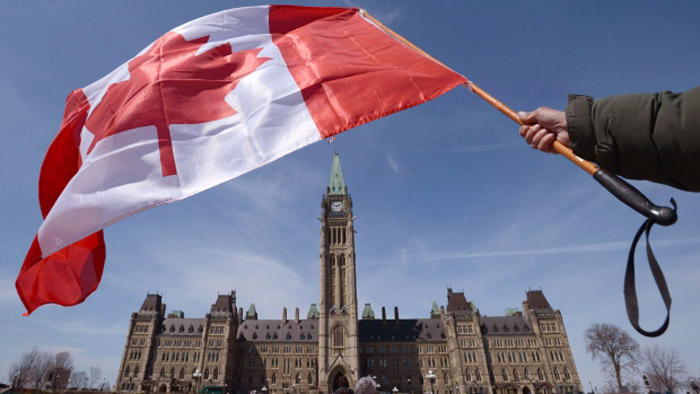On Sept. 24, the Max Bell School of Public Policy hosted a lecture titled “Canadian Foreign Policy at a Crossroads” as a part of their Fall 2019 Policy Lecture Series. Roland Paris, a professor of international affairs at the Graduate School of Public and International Affairs at the University of Ottawa, spoke about the mounting challenges facing Canada’s next government. Paris is a non-resident fellow with Chatham House in the UK and a former senior foreign policy advisor to Prime Minister Justin Trudeau.
In his talk, Paris spoke to the changing dynamics of international politics that he believes will force Canada to rethink its policies. As an example, Paris’ recounted America’s political situation, saying that it has made it significantly less reliable as a partner than it has been in the past. Meanwhile, populist nationalism has resurged in Europe, while China has begun to assert itself on the world stage, targeting Canada and others by applying political. According to Paris, the structure of institutions, alliances, and policies that have supported a relatively open and stable international order for decades is quickly degenerating, and Canada is transitioning from this American-led international order into something different.
“Maybe by the time [students] reach middle age, the contours of this new international order will be clear,” Paris said. “But for now, what is clear is that the existing order is foundering. To paraphrase the Italian Marxist philosopher Antonio Gramsci: ‘The old is dying, but the new is not yet born.”
Paris emphasized that this transition is not just of academic interest, but also has immediate and severe implications for Canadians. As a country with few security threats and privileged access to the US, the world’s largest and wealthiest market, Canada is accustomed to occupying a relatively comfortable position in international affairs.
However, Paris believes that these conditions are being called into doubt. Canada’s liberal identity which is dependent on a generally reliable US, is now being threatened by the angry populism and America-first chauvinism that is bubbling to the surface under Trump’s presidency.
“We are an independent country, and we don’t want to be subservient to the United States,” Paris said.
A colossal 75 per cent of Canada’s merchandise exports go to the United States, accounting for approximately 20 per cent of our Gross Domestic Product (GDP). Few countries are as dependent on a single trading relationship as Canada is on the US. Paris highlights that this vulnerability is one way in which the fraying of international order poses a direct challenge to some of Canada’s core interests.
“China and the United States […] have been weaponized in trade, using their own markets as an instrument to extract concessions in other areas or to coerce states for political ends,” Paris said. “Canada has been on the receiving end of this.”
Aria Yousefi, a graduate student of public policy, commented on Paris’ talk.
“I think he provided a really good perspective on how we need to reaffirm our values [as Canadians] whilst expanding our relationship,” Yousefi said.
After the lecture, professors, graduate students, and foreign policy enthusiasts lingered to exchange their views on the issues Paris brought to the table.
Jennifer Welsh, a professor of global governance and international security in the Department of Political Science at McGill, spoke to Paris’ analysis of Canada’s current condition.
“I think what Roland demonstrates […] is the importance of clarity […] in this complexity. How do we actually diagnose what we are?” Welsh said. “We’ve got to diagnose our situation. And then we have to speak without jargon […] about what some of our choices are that we need to make.”
To conclude, Paris emphasized that public policy experts need to make sense of how the world is changing and how those changes will affect Canada.
“[Current political leaders] will need all of [students’] brainpower in the years to come,” Paris said. “We will need your help in figuring out how to position Canada for success in this brave new world. So study hard, because it’s no exaggeration to say that your country will need you in this moment of uncertainty and of opportunity.”








